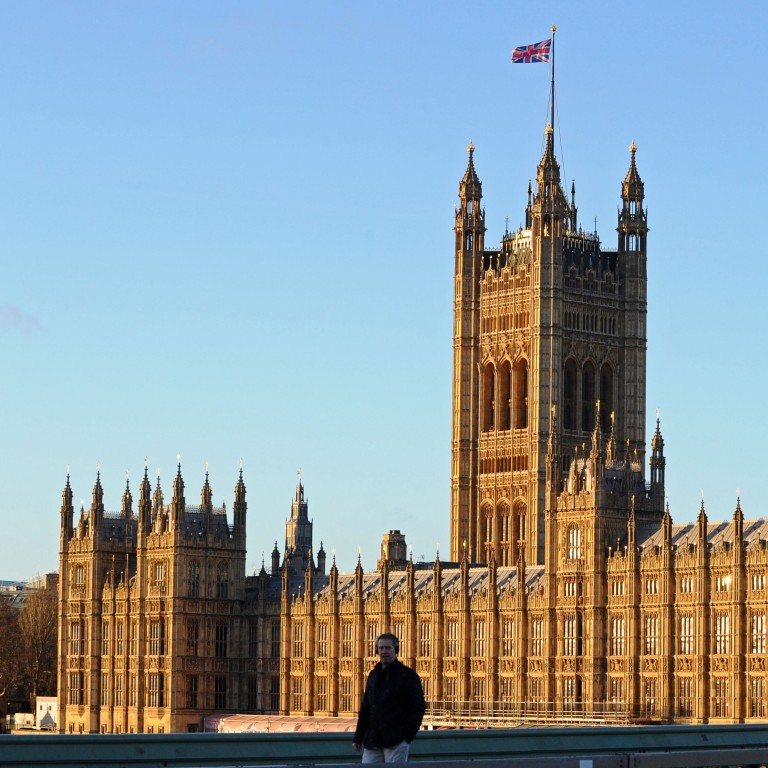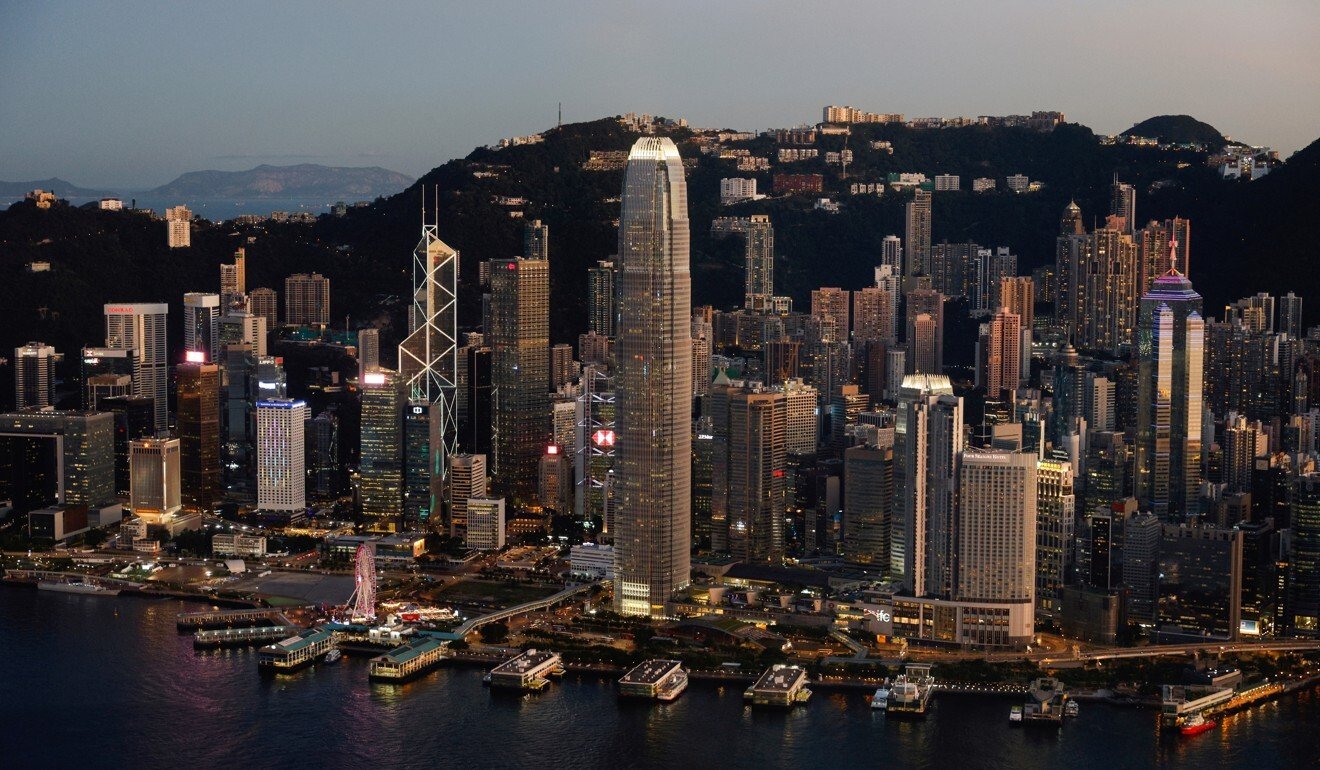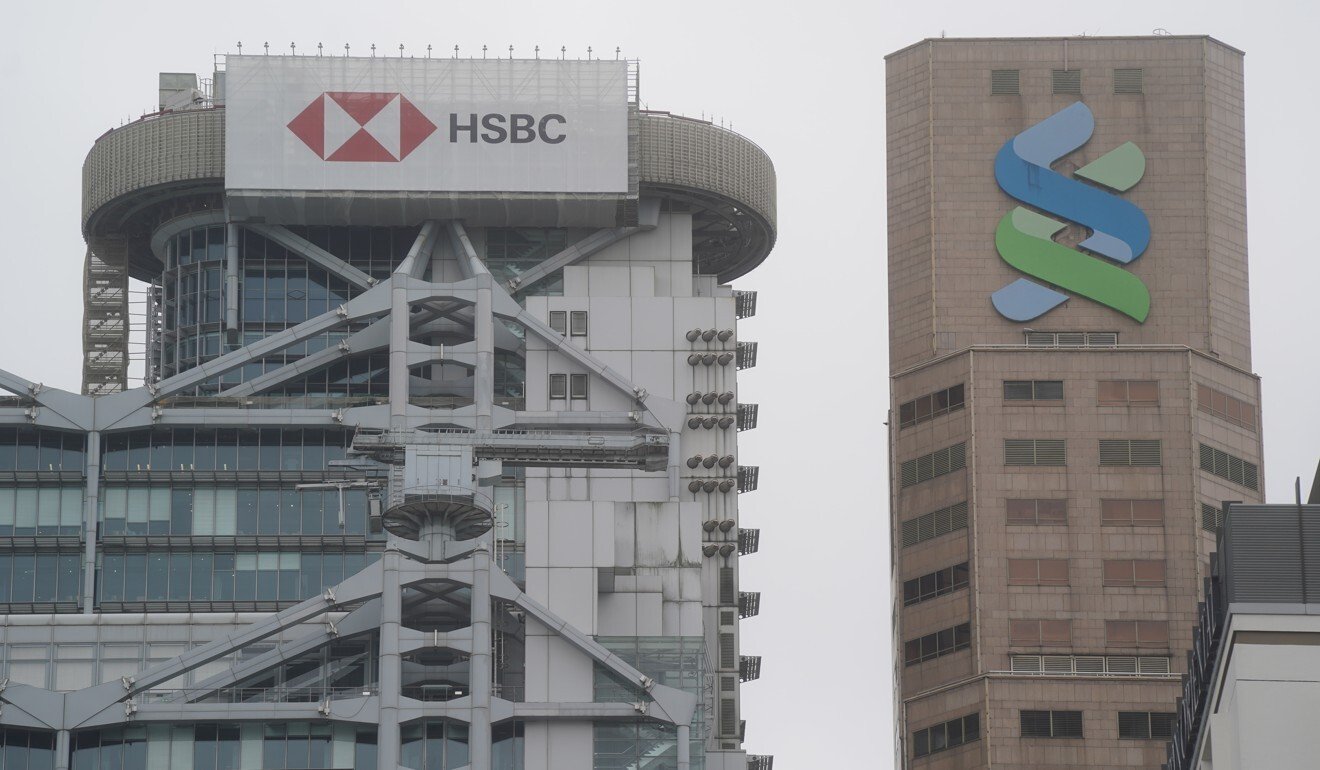
Inquiry launched into role of British banks in Hong Kong in ‘suppression’ of rights
- Britain’s All-Party Parliamentary Group (APPG) on Hong Kong will consider whether banks including HSBC helped China punish pro-democracy activists
- The inquiry is seeking witness statements from activists who have had their bank accounts frozen, as happened to fugitive former lawmaker Ted Hui Chi-fung
The All-Party Parliamentary Group (APPG) on Hong Kong, which includes both unelected peers and MPs, is asking for written witness statements from activists who have had their bank accounts frozen.
The aim is to determine if British banks contributed to the suppression of human rights in Hong Kong, including freedom of expression, movement, assembly and property. The inquiry also seeks to establish if the actions of the banks create any risk to Britain.
“These banks benefit from the UK government’s commitment to the rule of law and respect for human rights, and as such these are principles they should be expected to uphold when conducting their business abroad,” said the co-chairs of the group, Labour’s Alistair Carmichael MP and Green Party Peer Natalie Bennett.
“This inquiry will aim to establish whether UK banks are affording Hongkongers the rights and dignity they deserve and shed new light on the responsibilities of such businesses operating in foreign jurisdictions.”
The move follows a January meeting of the Foreign Affairs Select Committee which saw HSBC’s CEO Noel Quinn defend his bank’s move to freeze the accounts of fugitive former opposition lawmaker Ted Hui Chi-fung and his family.
HSBC boss defends decision to freeze accounts of fugitive ex-lawmaker Ted Hui
Quinn insisted the bank was legally obliged to act after being notified by Hong Kong police.
“That is a process that we operate very thoroughly and carefully with appropriate due diligence not only in Hong Kong but elsewhere in the world,” Quinn told the committee.
Chris Whitehouse, CEO of Whitehouse Communications, the public affairs consultancy running the inquiry on behalf of the all-party group, said British banks promoted their adherence to ESG (environmental, social and corporate governance).
“It’s not tenable to claim you do all these wonderful things whilst freezing bank accounts simply because of the audacity to leave a country in which you are being politically hounded,” he said.
British banks operating in Hong Kong and mainland China have been invited by the parliamentarians to make their own submissions, although they will have no obligation to do so.
“They don’t have to defend themselves but it’s an opportunity for the banks to set out their version of events,” said Whitehouse. “If they choose not to do that, officers will draw their own conclusions.”

Baroness Bennett of Manor Castle told the South China Morning Post that the formula chosen for the inquiry, which consists of digitally secure written testimonies instead of video, would make it more likely for victims to come forward.
“It gives people space to get their experiences on the record – we are less scary than something official like a parliamentary select committee,” she said.
The information gathered will serve both as a record and a tool to advise government policy, Bennett said.
Former lawmaker Ted Hui rejects HSBC explanation on why it froze his accounts
Its stated aim is “to promote democracy and the rule of law, and to defend human rights in Hong Kong, to share information about Hong Kong, to nurture relations between the United Kingdom and the people of Hong Kong; and to provide a welcome to Hongkongers coming to the United Kingdom”.

HSBC, the former colonial bank, has its headquarters in London’s Canary Wharf but makes most of its money in Asia, with its largest profits in Hong Kong. It is one of the world’s biggest banks with 200,000 staff across 64 countries, including 32,000 in the UK.
The Hong Kong controversy first hit the bank last year when it and London-based Standard Chartered both made statements saying the then proposed National Security Law could help maintain long-term stability in the city.
HSBC’s former Asia Pacific chief executive Peter Wong then signed a petition backing the law. Wong has since retired from the CEO role but is now a non-executive chairman.

